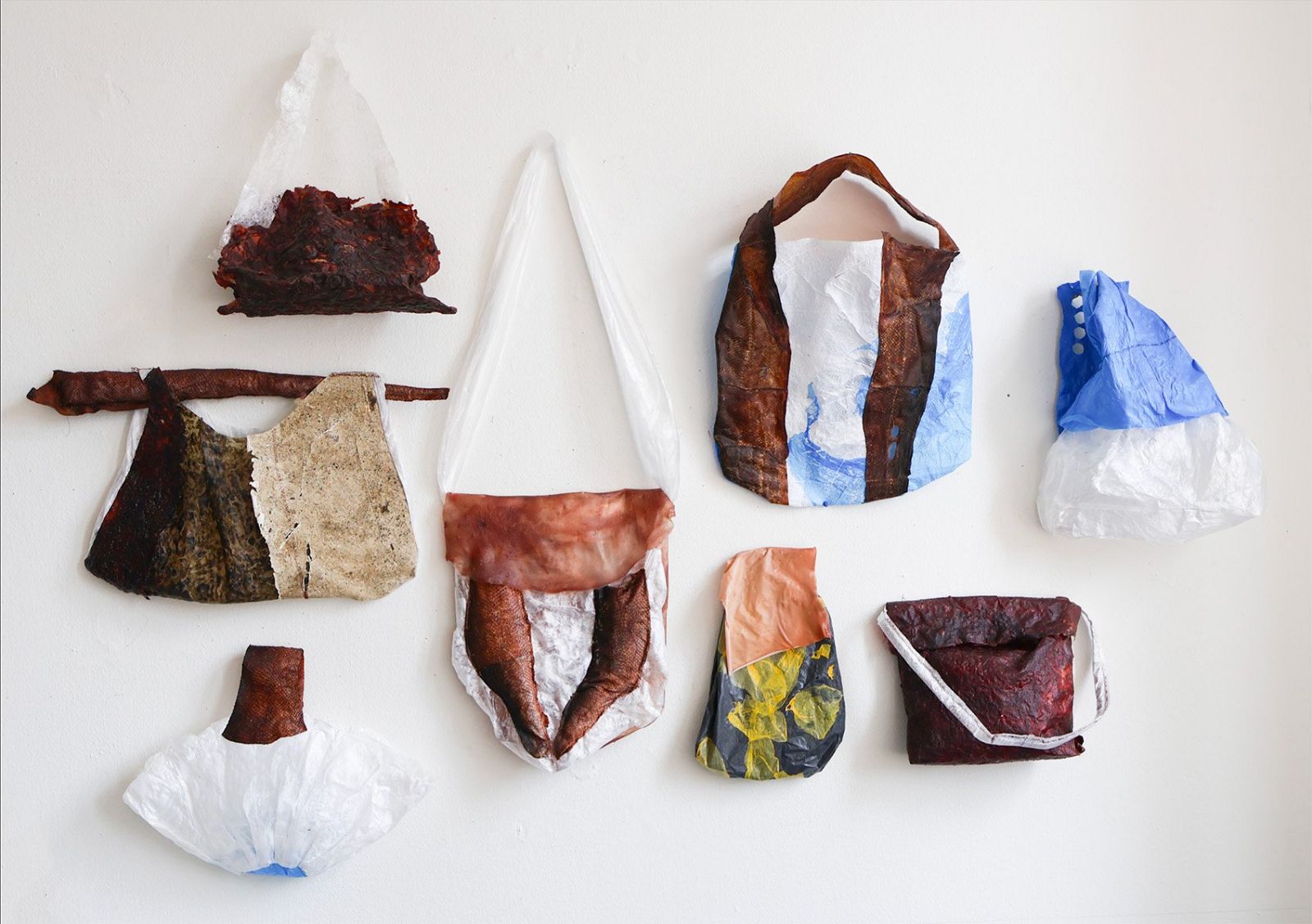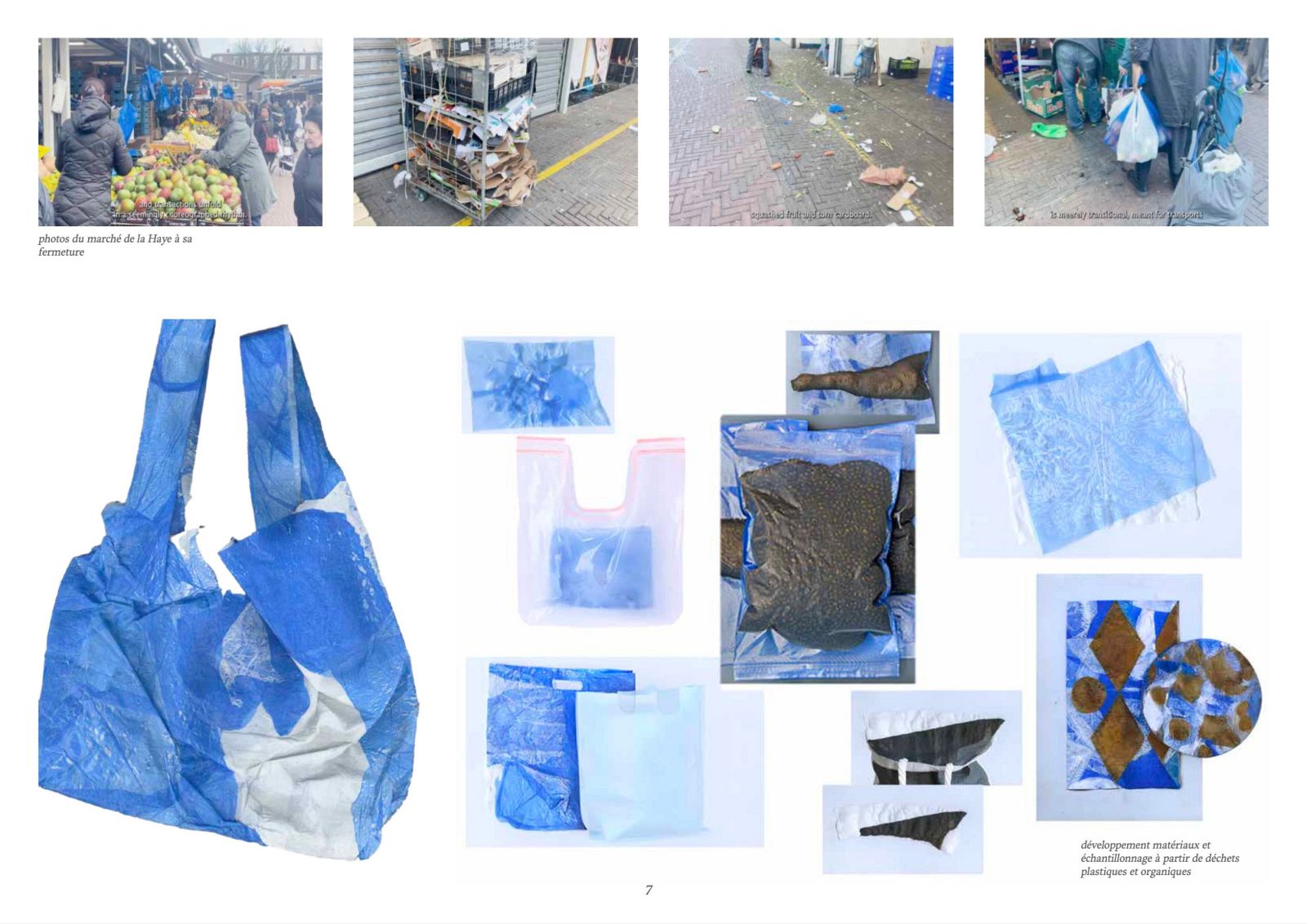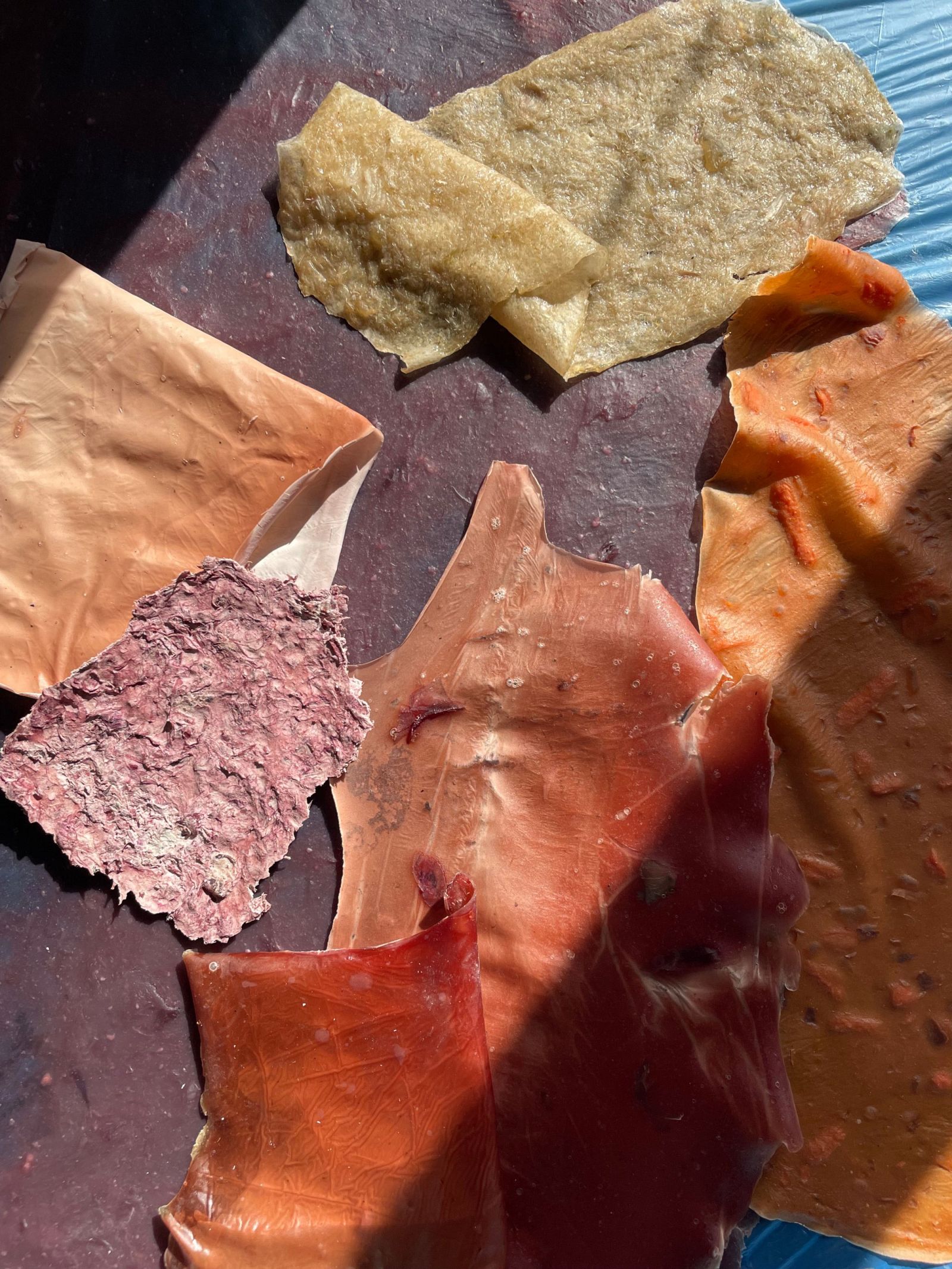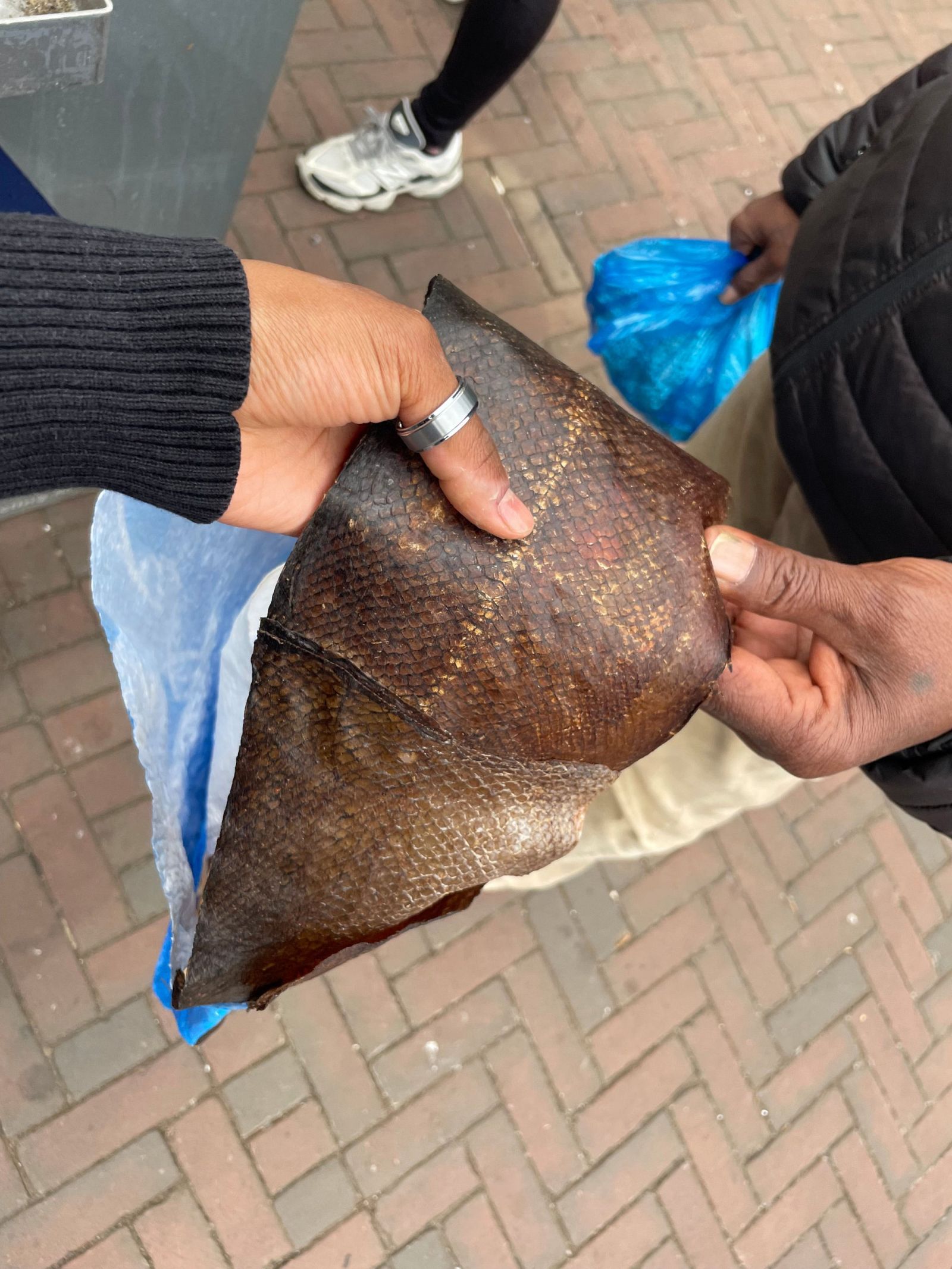
Enora Cressan
Keywords: Affective obsolescence, Transitory materials, Social conflict
Material Reset explores the concept of affective obsolescence: the tendency to lose, or never form an emotional or sensory connection with the materials of the objects that surround us. This disconnection contributes to a deeply ingrained culture of disposability, with acknowledged significant ecological implications. Through the project, I investigate how the expressive and tactile qualities of materials might reshape our relationship to objects, and in doing so, counteract this affective detachment.
The study grounds itself in the environment of The Hague Market (De Haagse Markt), which embodies a logic of impermanence. This vibrant, transient space reveals a material economy defined by ephemerality: each day, crates, bags, polystyrene, and cardboard serve short-lived functions -transporting and packaging goods- before being discarded without a second thought.
After collecting these "dead materials," I explored methods of transformation and assembly, experimenting with texture, form, and unexpected pairings. By combining fish skin -a living, organic membrane- with synthetic plastic, and incorporating biomaterials made from fruit peels, friction emerges between the surfaces, printing the material portrait of this place. My series of exploratory bags appear as a tactile archive of invisible narratives, where discarded matter becomes a site of meaning.
However, De Haagse Markt- as a lively, multicultural space with its own rhythms and priorities- does not necessarily lend itself to immediate engagement with these ecological or material concerns.The bag becomes more than just an object but a narrative tool, inviting dialogue with users and fostering a renewed, more mindful awareness of materials in a setting where their value is often overlooked.


